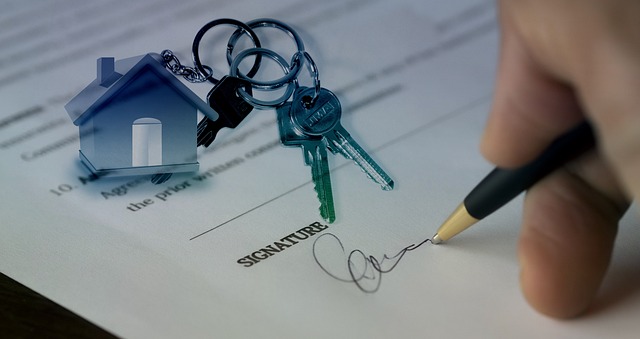Have you felt discouraged by the “cash only” requirement of most auctions? We recognize that if you’re a novice investor in real estate, you might not have the available cash to purchase properties at auction. However, not having the cash does not mean “game over” for your real estate business. Here, we’ll show you a few strategies for bidding on a house at auction even if you don’t have the cash on hand.
Table of Contents
Can You Buy a House at Auction Without Cash?
To buy a house at auction, you almost always need at least some cash. As we previously mentioned, the majority of county auctions demand a deposit right away after the winning bid is selected. Many counties demand that the remaining amount be paid within a few hours or days of the winning bid. Most properties up for auction will cost money. To buy these properties, you typically won’t have time for a conventional mortgage. Furthermore, banks frequently won’t lend on these because they are too damaged.
How to Buy a House at Auction Without Cash?
Get a Hard Money Loan
People with poor credit or complicated finances can get loans from hard money lenders to purchase assets like real estate. Hard money lenders will offer a real estate-backed loan, and just like a traditional mortgage, if the borrower is unable to repay the loan, the lender may seize the collateral.
Since hard money lenders charge significantly higher interest rates over a shorter period of time to help offset the increased risk of the loan, they are less concerned with things like credit scores than other lenders are.
The asset—in this case, the house—that is used as collateral for the loan is carefully examined by these lenders. In determining whether the home is valuable enough to serve as collateral for the loan, the lender will take into account the market value and condition of the property (i.e. they think they’ll still be able to make a profit if you default).
Because hard money lenders are frequently willing to act quickly, they frequently work for homebuyers at auction. A hard money lender can frequently give you the money you need to finish a purchase in a few days as opposed to a few weeks or months.
However, there are drawbacks to hard money loans. For starters, their interest rates are typically much higher than those of conventional mortgages. 10% to 15% interest is typical for hard money loans.
Additionally, the terms of these loans are much shorter. Hard money loans typically last only 6 to 12 months. Lender will demand full payment of the balance after that point. Due to these factors, hard money loan borrowers who purchase homes typically refinance them with conventional mortgages within a few months.
Find a local lender that is familiar with your local market before applying for a hard money loan. Speaking with knowledgeable real estate agents or lawyers will help you with this.
The lender will then need information about the property being used to secure the loan. This entails conducting market research on the property before the auction and giving the lender any information you can gather about its market value, its current occupancy, its state of repair, and other factors.
A down payment will also be required, usually around 25%. Additionally, you must demonstrate that you have the funds available to cover the loan’s payments in full. You might also need to describe what will happen to the house when the loan’s term is up, such as whether you’ll sell it or refinance it.
Once you have met the requirements of the hard money lender, you can get the cashier’s check you need to pay the invoice following the auction.
Use Peer-to-peer Lending
Platforms for peer-to-peer (P2P) lending online link potential lenders and borrowers. The interest rates, down payment, security, and information requirements might be comparable to those of hard money lenders. However, depending on the specific lender or group of lenders, they can differ significantly.
Hard money lenders can finance the purchase of a very expensive home, whereas P2P lenders are less likely to be able to do so. The maximum loan amount for a mortgage on well-known P2P platform Lending Club, for instance, is $50,000.
P2P lenders, on the other hand, can generate money quickly; in the case of Lending Club, this can happen in as little as 48 hours.
Use Your Home’s Equity
If you already own a home, you might be able to use the equity in your home to obtain a home equity loan or line of credit. The money from the home equity loan can then be used to pay for the foreclosure home you won at auction.
Home equity loans can offer significantly more funding than peer-to-peer loans and also have more enticing interest rates than hard money lenders. For instance, Bank of America offers a home equity loan with a starting interest rate of 2.49% that rises to 4.7% after six months.
You won’t need to refinance right away because home equity loans have much longer terms than hard money loans.
But the main danger of a home equity loan is that it uses your current home as security. Foreclosure on your own home is a possibility if you don’t make the required payments on the home equity loan.
Get a Personal Loan
You qualify for a personal loan based on your credit history, credit score, and capacity to repay debt. Many places, including banks, credit unions, and online lenders, offer personal loans.
Although credit unions frequently offer favorable terms, you may need to pay a small membership fee, reside in a specific area, or be a member of a particular group (such as the armed forces) in order to borrow money from them.
Typically between three and five years, credit union personal loans have longer terms than hard money loans. From 7.5% to 18%, the rates are comparable. A personal loan’s borrowing capacity typically caps out at $50,000, so you might have trouble getting enough to cover your entire auction purchase.
The benefit of a personal loan is that you can receive money quickly. In most cases, you won’t have to put any security up as collateral.

Get a Fast Mortgage
In extremely rare circumstances, you might be able to pay for a foreclosure purchase with a conventional mortgage. Finding a lender who can act more quickly than the typical 30 days it takes to fund a conventional mortgage, purchasing a foreclosed home from a bank that gives you weeks rather than days to come up with the money, or both, will determine how long the process will take.
This strategy runs the risk of forcing you to come up with all the cash on short notice, possibly by taking a more expensive or risky route, if there are delays in closing and funding the loan. To make the commitment to purchase a home at auction using money from a conventional mortgage, you must have faith in your lender.
Finance With the Seller
It makes sense that the lender would provide the financing since the seller of a home that is put up for auction is typically a lender.
Lenders, however, very infrequently finance the acquisition of houses offered for sale at auction. Asking for a loan from the lender who is selling the house may be worthwhile in a pinch if your other options for raising the money prove unsuccessful. However, this probably won’t work well as a primary tactic.
Buy through An Auction Site
The sale of foreclosed homes to the highest bidder doesn’t just happen on courthouse steps. It is also possible to place a bid on foreclosure properties at online auctions hosted by websites like Auction.com.
In an online auction, the procedure is different. However, if you win the bid, you are not required to provide the money.
“If you bid on a property and win, you have time to get your finances in order,” According to Durham, you may have several weeks to secure financing, just like with a regular purchase. “If you win the bid, it’s kind of like a normal closing,” he says.
How Does It Work to Buy a House at Auction?
This is a great way for real estate investors to identify below-market opportunities. The idea is that you’ll be able to buy properties from banks and lenders who are trying to sell them as soon as possible. It’s important that you attend the auction event if you’re interested because the auctions frequently take place in a short period of time. Before making a purchase, make sure to familiarize yourself with the entire procedure in your area because the regulations and specifications can differ from county to county. More on this will be discussed.
Are There Different Types of Real Estate Auctions?
Land and foreclosed properties are both subject to auction. There are primarily two types of auctions: online and live. Although many investors favor purchasing homes at foreclosure auctions, that isn’t the only option. You can also find excellent deals on empty lots or inexpensive homes that need some repairs before you put them on the market.
The county or city usually arranges live auctions, which are held at the neighborhood courthouse. You’ll discover that properties are listed in an auction schedule and are sold at a bidder-decided price. You usually need to have cash on hand for the auction, usually between 10% and 20% of the sale price, with the remaining balance being due shortly after the auction. Additionally, these properties are frequently bought and sold without ever seeing them. You won’t have time to tour the properties, in other words. However, it’s unlikely that you will be permitted to see the inside of a property before the purchase. Savvy investors may be able to obtain property lists prior to the auction so you can drive by.
On websites like eBay, auction.com, and others, online auctions are available. On their websites, local counties can be found that provide online bidding. You can take advantage of this by learning how to purchase real estate from these municipalities when learning how to purchase a home at auction.
The main distinction between live auctions and online auctions is the length of the auction. While live auctions may only last a few hours, online auctions frequently last for several days. For properties that are up for auction online, showings can usually be scheduled.
What’s a Real Estate Auction?
To put it simply, people or organizations use real estate auctions to openly sell a property. And, homeowners, builders, governments, and banks can all host auctions. But since bank-sponsored auctions typically offer the most opportunities for real estate investors, I’ll specifically concentrate on them in this article.
Real estate auctions allow banks to remove properties from their books. Banks take possession of homeowners whose loans are in default during the foreclosure process. The corresponding house is used as collateral for mortgages. Thus, if the borrower stops making loan payments (i.e., defaults), the bank will be able to seize the property and sell it to recoup the unpaid loan balance.
Banks frequently acquire real estate as a result of this foreclosure process. However, holding these homes comes at a high cost and uses up capital that banks would rather A) lend and earn interest on, or B) use to satisfy mandated reserve ratios. Banks opt to sell these homes rather than hold onto them. To make these sales, they frequently hold auctions.
In general, there are two kinds of bank auctions: public and private. I’ll go into more detail on both of these in the sections that follow.
What Are “Cash Only” Auctions?
It’s true that many sellers only accept cash offers at auctions, giving the advantage to cash buyers. So what does “cash only” really mean? Simply put, it means that after placing the winning bid, you must pay for the investment property immediately or within a certain amount of time. These auctions, as is customary, permit bidding on a house up until the conclusion of the auction, at which point the house is sold to the highest bidder. The winning bidder will typically need to pay the full amount right away or a small deposit (5% to 10%), with the remaining balance being due in a month or so. Keep in mind that buyers must also pay the costs associated with the real estate auction.
The “cash only” requirement is common in fast-moving markets. Due to the challenges of getting a mortgage on distressed properties, it is almost always necessary when the properties require significant renovations. Another reason is that due to the short auction closing windows, which can range from a few hours to a few days, it is very challenging to obtain bank financing when purchasing a home at auction.
Can a house be purchased at auction without paying cash, though? Whether you are planning on attending a live auction at courthouse steps or online auctions, you cannot get past the “cash only” requirement per se, but there are options for real estate auction financing.
FAQs
Can You Get a Mortgage to Buy a House at Auction?
No, usually not. Most auctions, especially those held by counties or cities, call for a cash deposit to be made right away and final payment to be made in as little as a few days after the winning bid. These properties also aren’t in good enough condition to qualify for a conventional mortgage.
Is It Hard to Buy a House at Auction?
Being forced to make a purchase without having seen the home is the biggest worry when purchasing a home at auction. This almost always leads to enormous unforeseen costs.
Can First Time Buyers Buy at Auction?
Yes, this is a fantastic chance for new investors to get a good deal. Always keep your financing options in mind.
Final Thoughts
You may have noticed that we did not mention traditional bank financing as a possible way to buy an auctioned property. This is merely due to the fact that it is frequently very improbable that the investment property will satisfy the requirements of the majority of mortgage lenders. Mortgage lenders will typically only make a loan against a home that is immediately habitable or rentable. It is also doubtful that applicants could complete their lending application by the time the auction ended.
A few months after you’ve paid cash, personal funds, or hard cash for an auctioned home, conventional bank loans will become an option. These financing options are almost always expensive, so if you intend to keep the investment property, you should quickly refinance into traditional bank loans. For instance, after the investment property has undergone renovations to meet mortgage eligibility requirements, this can be done.
We’re hoping that these quick cash techniques will enable you to close a great real estate deal at the upcoming auction. Before making a decision, you may still feel as though you need more information and resources. Mashvisor’s real estate investment blog discusses auction properties.
Read about


